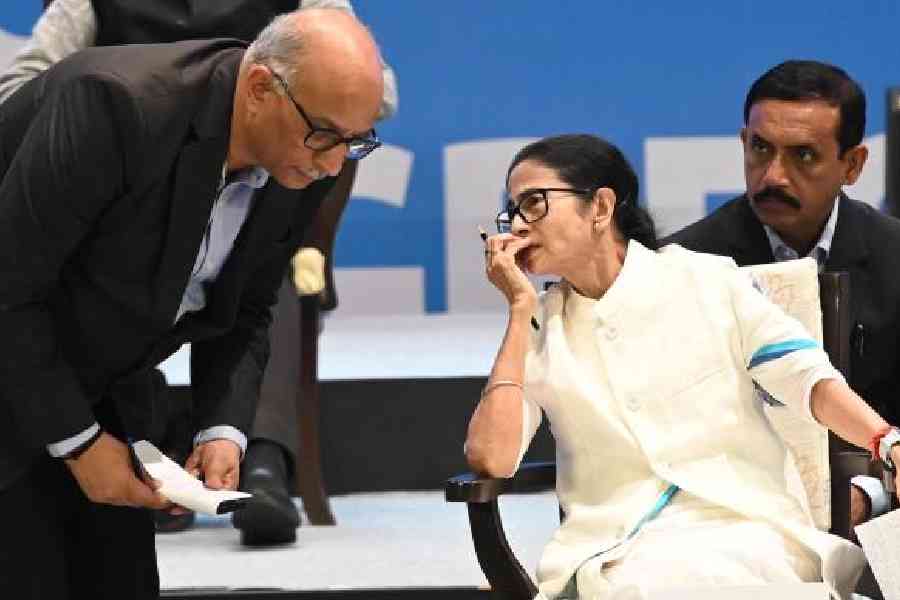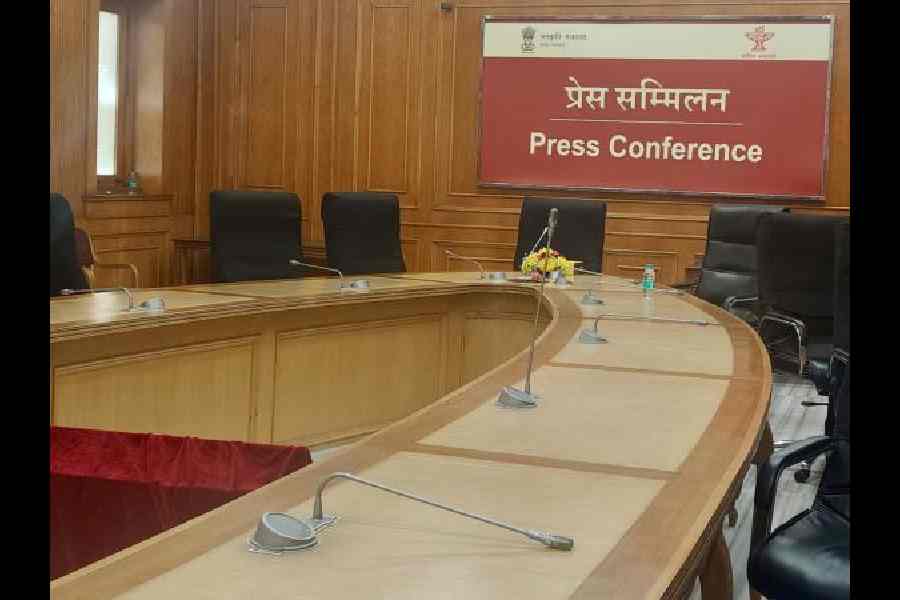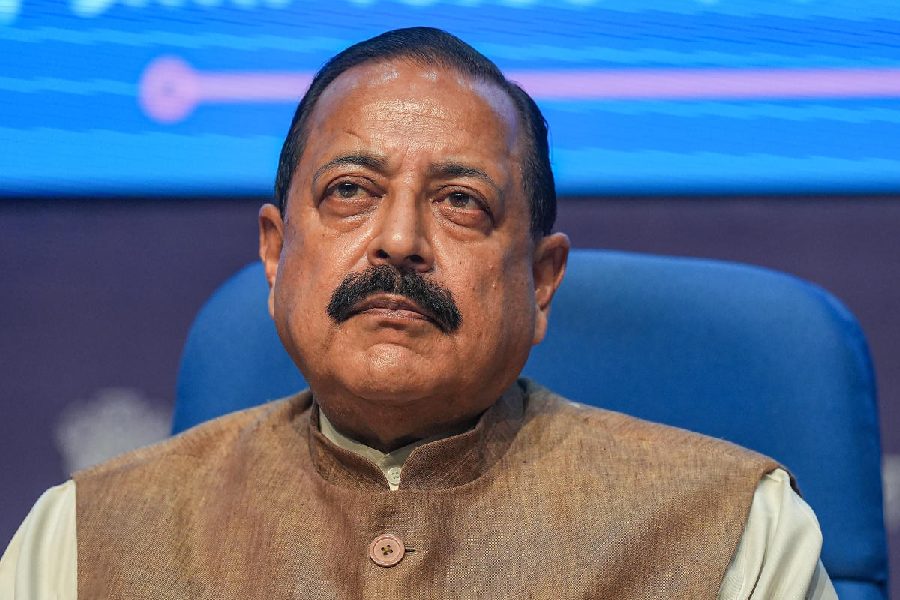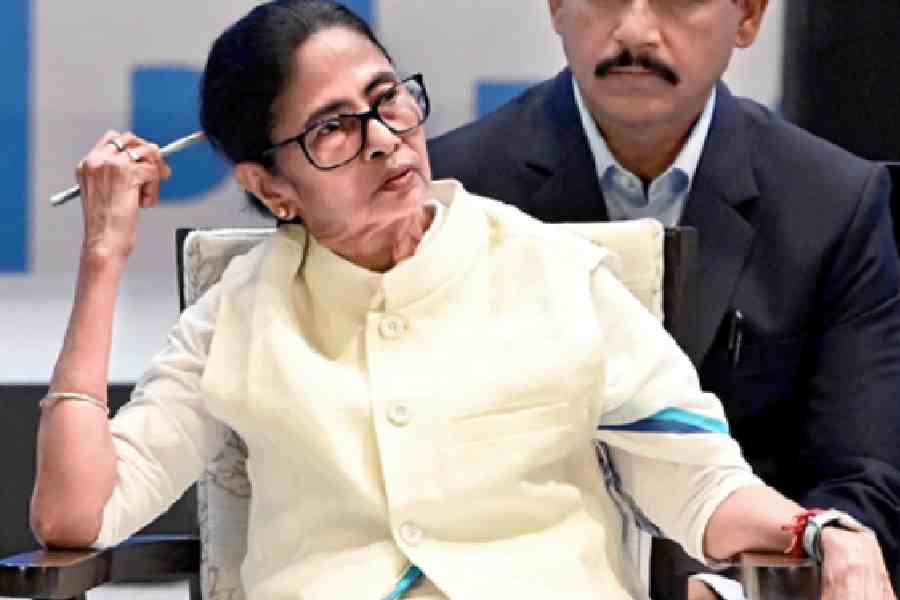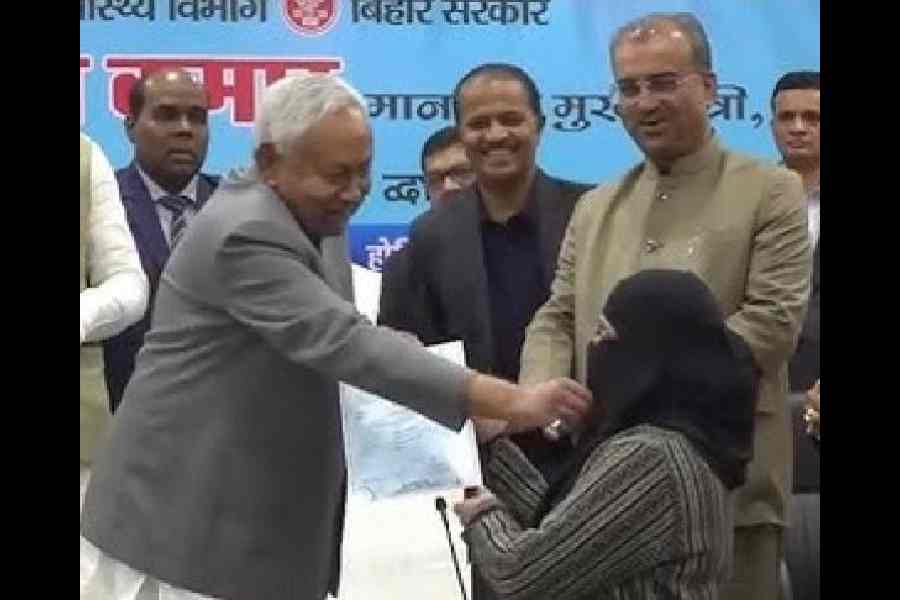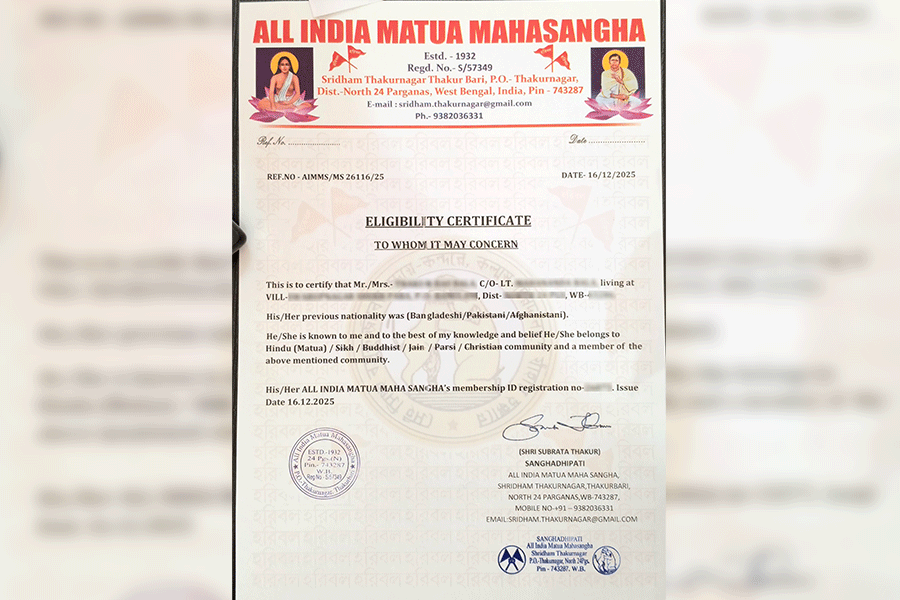Bengali group theatre has found its soulmate in the remembrances of things
past. Rashbehari Shailushik chips in with a moving commentary on the sweeping changes in North Calcutta localities over the past four decades with Padmanabha Dasgupta’s adaptation of Thornton Wilder’s Our Town into Godhuli Gagane (picture, left).
Riding high on the success of Barkatganjer Bakra — a breezy adaptation of Nikolai Gogol’s The Government Inspector — Dasgupta takes a lingering look at Hatibagan of the 1980s, when music schools worked overtime to organise prabhat pheri on the morning of Tagore’s birthday, when Kapil Dev was leading India to win the Prudential Cup, when booster boxes defined television antennas, when neighbourhoods woke up to the signature tune of All India Radio, when Bhojpuri-speaking milkmaids signalled a break in a predominantly Bengali locality.
Dasgupta displays remarkable maturity in handling the complex web of relationships in a closely knit neighbourhood at the crossroads. He maintains Wilder’s original structure by placing the Ghosh and the Sen families at pivotal positions. While Gautam Purkayastha sounded a pitch lower than expected at the show at Girish Mancha (November 24), Shromona Ghosh complemented him in running the Ghosh household. As for the Sens, Arjun Dasgupta kept his flair for comedy under check and Sharmistha Mukherjee charmed as a homemaker. Dasgupta, who has directed the production, also plays the narrator with empathy, maintaining fluidity all along. The romantic lead could have performed better with Nabanita Dutta stealing a march over Subhojit Das at critical moments. Among the many loveable cameos, Suchismita Mukherjee impressed in a blink-and-you-miss-it part.
Mention must be made of Sudip Sanyal’s intricate light design, especially in the graveyard scene which Dasgupta reworks to suit a Hindu funeral. The background music and sound design contributed to Godhuli Gagane’s success. A Metro railway announcement — “Next station Netaji Bhavan” — indicated the year, 1997, when the station was renamed from erstwhile Bhowanipore. Suave, yet subtle. My favourite musical moment is when Sanyal’s light concentrates on an old window frame where a middle-aged spinster appears and “Shunye dana mele pakhira ure gele” by Hemanta Mukhopadhyay glides in softly from the radio. One wishes that the actor playing the music teacher could sing in tune as well.
Continuing with adaptations, Hypokrites comes of age with a Bengali reworking of Luigi Pirandello’s Right You Are, If You Think So (Academy of Fine Arts, August 20). Smartly titled Tabe Tai (picture, right), this Pratik Dutta adaptation centres around Banani Devi (Avery Singha Roy), an elderly lady who comes to live in an apartment block with a young couple. Mysterious circumstances lead the other families of the block to probe into the life of the elderly lady. Skeletons start tumbling out of the cupboard, but no conclusion is reached. Dutta’s text explores the underbelly of contemporary Calcutta, including the southern fringes. Besides direction, Susnato Bhattacherjee designs the set and scores the music with competence. The hilarious as well as the tense moments were handled well. The young cast, led by an effortless Satyam Bhattacharya, tries hard to etch life-like portrayals and manages to pull it through. Singha Roy, otherwise a good actor, falls short of justifying the age of the senior citizen.


